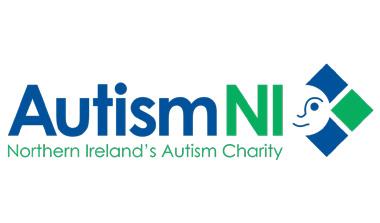What Is Asperger's?
Individuals with a diagnosis of Asperger’s (AS) are within the spectrum of autism. Often, but not always, these individuals appear to have more typical language development and experience fewer problems with talking and understanding verbal communication. Many report specific challenges that can impact on their lives and how they are able to relate to other people.
Updates within the diagnostic guidelines and criteria have removed the diagnosis of AS and instead use the term ‘autism’ to describe the whole spectrum. If you already have a diagnosis of AS, you will keep this diagnosis and not need reassessed. The updated guidelines state that characteristics of autism now fall under two main categories:
1. SOCIAL INTERACTION AND COMMUNICATION
Difficulties in social communication and interactions can vary widely depending on the individual. Some autistic individuals may be non-verbal (do not use language to communicate their needs) and some individuals are verbal but may find certain aspects of social communication challenging. Some of the common communication and interaction difficulties include:
- Starting and maintaining social communication (e.g. understanding small talk)
- Understanding nonverbal cues (e.g. body language, tone of voice, facial expressions)
- Understanding the social context of a situation
- Social Skills (e.g. personal space, eye contact)
- Understanding other people’s thoughts and reactions
There are lots of ways to support a person with their social and communication needs, including adapting our communication methods to better suit autistic individuals. Many autistic individuals prefer visual styles of communication, for example, receiving written instructions, images or directions rather than having to memorise verbal information. Teaching social skills and social understanding can support autistic individuals to feel more confident within social situations.
2. RESTRICTED INTERESTS AND REPETITIVE BEHAVIOURS
Many autistic individuals may prefer routines, plans and knowing what to expect. Changes within a day can be highly stressful. Some of the common restricted and repetitive patterns of behaviour include:
- High anxiety because of unexpected changes
- The need to follow particular routines or rules
- Repetitive behaviour (e.g. finger flicking, foot tapping) or interests (e.g. highly focused on topics or activities)
- Hypersensitivity (over sensitive) or hyposensitivity (under sensitive) to sensory information including noise, lights, smell, taste, touch and body awareness.
Many of these differences are due to how a person’s brain is processing information about the world around them. There are lots of adaptations that can be beneficial to autistic individuals, including adapting the sensory environment and providing relevant information in a clear and concise way. Every individual is different.
To obtain an autism diagnosis, individuals will have a multi-disciplinary assessment involving a team of professionals who are skilled and knowledgeable in this area. Autism is lifelong and affects the social and communication centre of the brain. Autism affects the way an individual relates to people, situations and the immediate environment. Many autistic individuals have difficulty processing everyday sensory information like sight, smell, touch, taste and sound.
STRENGTHS
Autistic individuals may have an encyclopaedic knowledge of their interest areas and can become highly skilled within the area they enjoy. Many may have intense focus and can pay great attention to detail, noticing if there is even the slightest change. These strengths and abilities are often sought after in the fields of computer science, research, chemistry, and physics etc. Other strengths may include strong memory skills specifically long-term memory and finally the ability to think outside the box, by using their logical and creatives abilities.
IMPORTANT MESSAGES
- Individuals and families can ring the Autism NI Helpline for guidance and support.
- Speak to the G.P. for a referral to professionals with a specialist understanding of autism with regards to available interventions, support and services.
- Present information visually e.g. written checklists can be much easier to process for autistic individuals than verbal instructions.
- Autistic individuals may require some adaptations or strategies that enable them to reach their full potential. Temple Grandin highlighted “the world needs different kinds of minds to work together.”
RESOURCES
- Autism NI Helpline 02890 401729 (Option 1)
- Autism NI website www.autismni.org
- Asperger’s and Me: Chris Packham documentary
- The Complete Guide to Asperger’s Syndrome: Tony Attwood
- The Girl with the Curly Hair: Asperger’s and Me





























